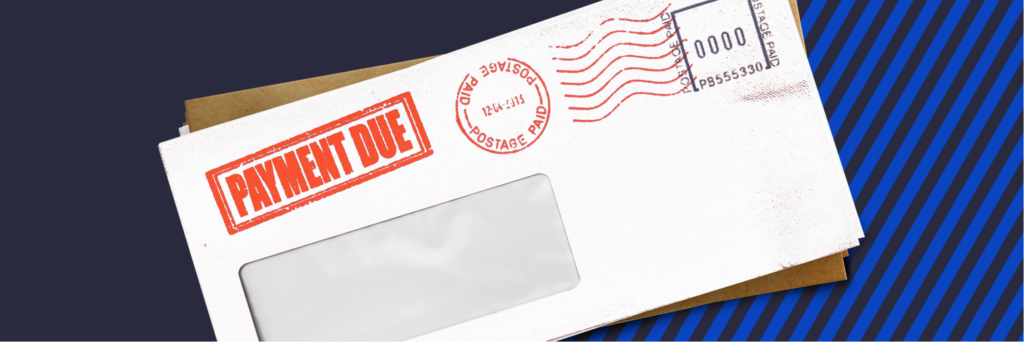A debit card uses funds from an attached account. After making a purchase, you can see the funds deducted from your account. By contrast, a credit card extends you a line of credit assigned to your card, which is a short-term loan to be repaid. Your monthly credit card bill keeps track of your purchases and allows you to repay these small loans over time or in full each month.
While there are several differences between debit and credit cards, both are accepted for purchases by most retailers. Understanding the differences between a credit card vs a debit card can help you better manage your money and enhance your financial knowledge. Here’s a quick overview of how credit cards and debit cards generally work. This article provides general information regarding debit and credit cards, and may not reflect the terms and conditions of specific products. For more information regarding products offered through Avant, see Credit Cardmember Agreement.
| Credit Card | Debit Card |
| Make purchases, even if you don’t have the cash at-hand | Pay for items, only if your account has enough money to cover the purchase |
| No interest charges if paid in full each month | No interest charges |
| Extends a short-term loan you can pay back later | Draws money from your account |
| Can help you to build a credit history and influence your credit score | Does not influence your credit score |
| Charges fees for some transactions | Only charges fees if you overdraw your account |
| Protects against fraudulent charges | Limited protection against fraudulent charges |
What is a Debit Card?
A debit card is a method of payment similar to cash, but easier to carry. A debit card is linked to the funds in your deposit, checking, and/or savings account. It transfers money electronically from your account to the merchant when you make a purchase.
Another type of debit card is a prepaid card, like a gift card. Unlike a traditional debit card, a prepaid card is not attached to a deposit, checking, or savings account. Rather, it has a certain amount of money loaded onto it. Every time you use it, the cost of what you purchase is deducted from the total value of the card until the balance reaches zero. In some cases, you can replenish funds on a prepaid card in order to re-use it. One of the chief benefits of a prepaid card is that this type of card can help to prevent you from spending more than you have, limiting you to the amount assigned to your card.
How Do Debit Cards Work?
Your debit card accesses money from the account it is linked to. You can use it to make online or in-store purchases, as well as ATM transactions like checking your balance, withdrawing cash, making deposits, or transferring money. To keep your account secure, you may need a personal identification number (PIN) when using your debit card.
With a debit card, you are limited to only withdraw or spend the amount of money in your account. Any attempt to exceed that amount will typically be declined unless your account offers an overdraft protection product. Three ways to avoid having your debit card transaction declined are:
- Always know the balance of your account and stay within those limits.
- Link your debit account to a savings account with backup funds.
- Sign up for overdraft protection if your account offers it.
Depending on your debit card provider, it could be linked to a savings account as well as a checking account so any purchase amount exceeding funds in your checking account will be deducted from your savings if you go over your balance. Overdraft protection covers transactions beyond your account balance with a small loan, like credit, from your financial institution.
What Are the Advantages of Using a Debit Card?
Don’t like carrying cash? Not sure how much you’ll need? Debit cards provide the convenience and security of using your money when and where you like. They give you ready and safe access to your money almost anywhere. The benefits of using a debit card include:
- No interest or monthly bill.
- Keep money in your account until you want to spend it.
- Track your spending effortlessly.
- No need to visit an ATM to make purchases.
- Widely accepted.
What Are the Disadvantages of Using a Debit Card?
Carrying a debit card is better than carrying cash, but it does have some down-sides:
- You could face fees for transactions at ATMs.
- You won’t build your credit history or improve your credit score by using a debit card.
- You could be responsible for fraudulent charges if your card is lost or stolen.
- You may tend to overspend because of the convenience of carrying a debit card.
What is a Credit Card?
A credit card is a line of credit – a promise of a loan of any amount at any time you need it until you reach a total maximum. When you get your credit card, you agree to repay any amount you borrow, plus interest, according to the terms of the credit card agreement.
How Do Credit Cards Work?
Every purchase you make with a credit card is a small loan. At the end of each 30-day billing cycle, you get a statement that tells you how much credit you used, how much is still available to you, and what fees, if any, you’ve incurred.
The credit card bill gives you two options:
- If you pay the balance in full, you start the next month with your full line of credit intact. This means you could charge up to your maximum credit limit.
- If you pay only a portion of the balance, you are agreeing to pay interest on the rest. Those interest charges will be noted on your next month’s statement.
To keep your credit account current and avoid late fees, you must pay at least the required minimum payment by the date noted on your credit card statement. Consistent on-time payments will help you establish a good credit history.
What Are the Advantages of Using a Credit Card?
Credit cards offer some of the same conveniences as debit cards, but also offer several added advantages:
- If your card is lost or stolen, you may not be held responsible for fraudulent charges.
- You can use a credit card for emergencies when you don’t have the cash available.
- Credit cards can help you build your credit history and improve your credit score.
- Rewards programs let you earn benefits for using your credit card.
What Are the Disadvantages of Using a Credit Card?
There are downsides to using credit cards, including:
- You will be charged interest on purchases if you don’t pay off your balance each month.
- You could be charged fees for late payments, cash advances, and foreign transactions.
- Some credit cards charge an annual user fee.
- You could build up debt by spending money you don’t have and compounding it with monthly interest charges.
Debit vs. Credit Card: Which One Should I Use?
Using a credit card or debit card is a decision based on the situation. The deciding factor is almost always whether you have disposable cash to use for the purchase and, if not, whether you can pay off your credit card balance at the end of the month.
For routine purchases, like your morning latte, a debit card is easiest. It is just like using cash. A debit card will also help you stay within your budget when shopping for needs and wants.
You may choose to manage your money by using your credit card for all purchases and then paying it off in full at the end of each month. This way, you could take full advantage of any rewards your credit card offers.
When you don’t have enough cash, a credit card may be your only option for true emergencies. Charging more on your credit card than you can pay off in full the following month will trigger interest charges for the time it takes you to pay off the balance.
Avoid adding your five-dollar morning latte to your credit card balance unless you want to end up paying seven dollars for it. Your debit card is usually the best choice for all purchases while you are paying off the credit card balance.
Can I Use My Debit Card as a Credit Card?
Using your debit card as a credit card is usually an option when you make an in-store purchase. A debit card will still take the funds out of your account, even if you use it as a credit card. The only difference is how the merchant will process the transaction. A credit card transaction on your debit card does not require your PIN and may take longer to remove the funds from your account.
Can You Transfer Money from a Credit Card to a Debit Card?
Transferring money from your credit card to your debit card is considered a cash advance. You should check your credit card terms to see what, if any, fees and interest you will be charged. Decide whether the cost is worth it to you before proceeding. Once the money is in your account, you can use your debit card to spend it or withdraw it from an ATM as cash.
In the Market for a Better Credit or Debit Card?
Whether you are new to credit, need to rebuild your credit, or are just a responsible borrower, Avant has the right credit and debit card options for you. Our easy application process makes the Avant Credit Card^ your simple and transparent choice.
Take charge of your finances with Avant.
* Avant, LLC is a financial technology company, not a bank.
** The Avant Debit Card is issued by Evolve Bank & Trust pursuant to a license from Visa U.S.A. Inc. and may be used everywhere Visa® debit cards are accepted.
^Avant branded credit products are issued by WebBank.
This page is for informational purposes only. Avant does not provide financial, legal, or accounting advice. This material has been prepared for informational purposes only, and is not intended to provide, and should not be relied on for financial, legal, or accounting advice. You should consult your own financial, legal, and accounting advisors before engaging in any transaction.




